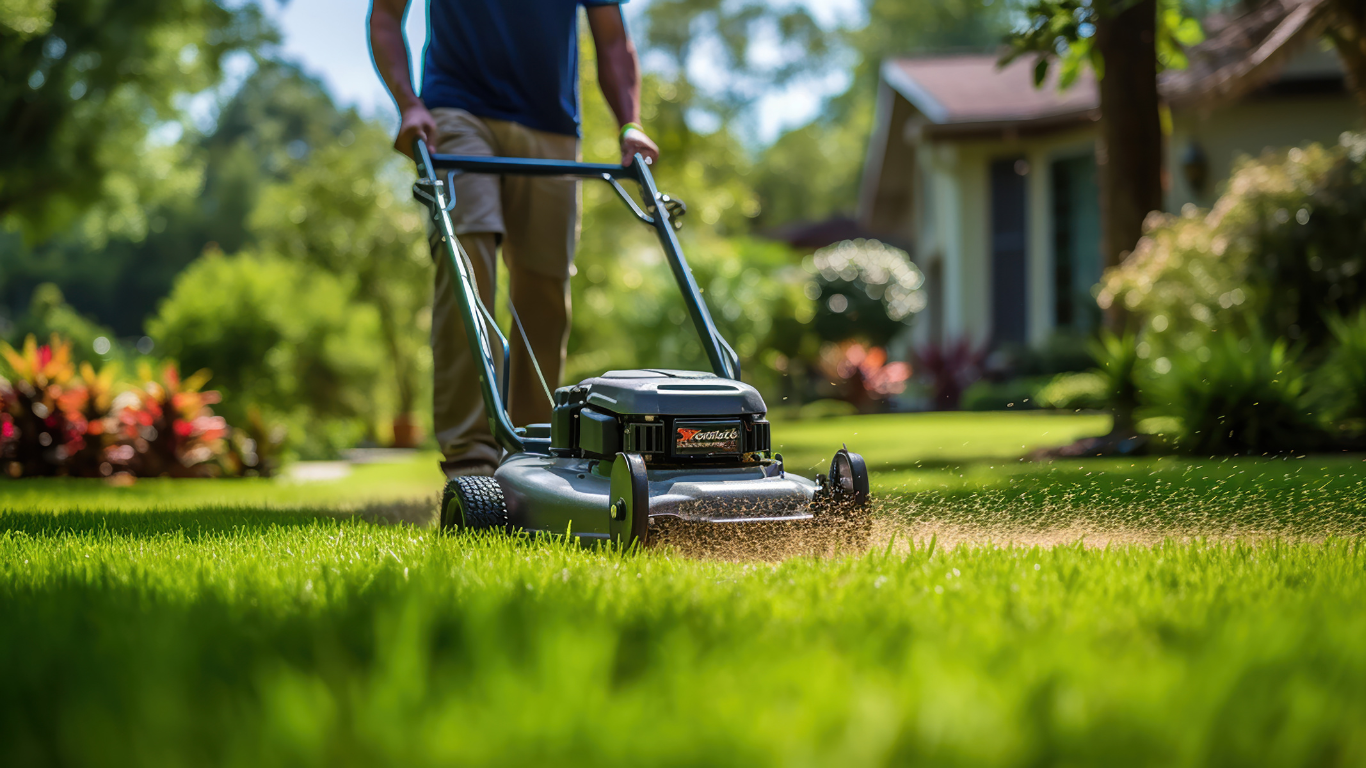Lawn care and maintenance is an ongoing process that involves several key steps to keep the grass healthy, lush, and attractive throughout the year. The first step is soil preparation, which may include aeration to improve drainage and root growth, as well as fertilization to replenish essential nutrients. Regular mowing is vital to maintain an even, well-groomed appearance; it should be done at the correct height for the grass type, typically leaving it slightly longer during hot months to promote deeper roots and shade the soil.
Watering is another crucial aspect, ensuring the lawn receives deep, infrequent watering rather than shallow, frequent watering, which encourages deep root systems. Weed control is also necessary, often through a combination of pre-emergent herbicides, manual removal, and proper mowing practices to reduce the chances of weeds taking root. Additionally, fertilization should be done seasonally, using a balanced fertilizer tailored to the lawn’s specific needs, whether it’s to boost growth in spring or prepare it for winter.
Lawn care is the art of balancing nature’s needs with the beauty of a healthy, vibrant yard.
Over time, routine tasks like edging, aerating, and dethatching help to maintain lawn health, while addressing issues like bare patches or pest problems promptly. Consistent care ensures a lush, vibrant lawn that not only enhances the landscape but also provides a functional outdoor space.
Benefits Of Lawncare And Maintenance
- Improved Environmental Health
- Enhanced Curb Appeal
- Erosion Control
- Better Outdoor Experience
Regular lawn care and maintenance offer a wide range of benefits that extend beyond just aesthetic appeal. A well-maintained lawn improves the overall health of the environment by helping to reduce air pollution, absorb carbon dioxide, and produce oxygen, making it an essential part of any landscape. Healthy grass also promotes better water absorption and reduces soil erosion by stabilizing the ground with its root system. Additionally, consistent lawn care enhances the curb appeal of a property, potentially increasing its value and making it more inviting to both residents and visitors. Proper maintenance practices, such as fertilization, aeration, and mowing, contribute to a stronger, denser lawn, which can naturally outcompete weeds, preventing infestations and reducing the need for chemical treatments.

.png)
.png)
.png)
.png)
.png)
